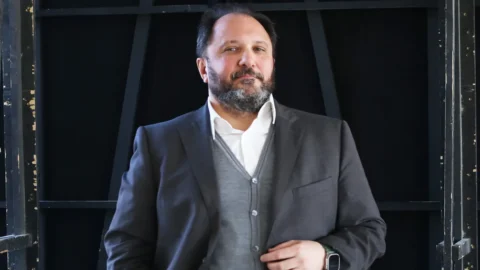"It's up to the politicians to find a solution" Alexis Tsipras keeps repeating in the last two weeks, certainly the most complicated since he has been at the head of the Greek government. And indeed, he is right. The negotiation is now in the hands of European politicians. Not all in the same way, though. Germany and France have taken on a leadership role, with Angela Merkel and Francois Hollande discussing directly with the Greek prime minister, forming a "directorate" of which, perhaps, Italy would have an interest in joining.
The situation in Greece is getting worse day by day. The timid signs of recovery that could be glimpsed at the end of 2014 have disappeared. Since January, the growth forecasts for 2015 have been revised downwards by two percentage points (from 2,5 per cent to 0,5 per cent), those for the primary surplus by more than 4 points (from 4,8 per cent to 0,4 per cent), unemployment by half a percentage point (from 25 per cent to 25,5 per cent) and bank deposits are at historic lows.
In such a scenario, the government of Alexis Tspras should run for cover and seek an agreement as soon as possible. Also because, by now, there isn't much time left: by 30 June, one and a half billion euros will have to be repaid to the International Monetary Fund.
Instead, the negotiations stalled. Athens refused all the proposals of the Brussels Group (the new name of the Troika desired by Greece): the revision of the VAT rates (despite the unjustified jungle of facilitations-exemptions), the labor reform (despite the proposed minimum wage, 751 euros, being slightly lower than the German one), pension reform (despite the fact that Greek pension expenditure, 16 per cent of the total, is among the highest in advanced countries) and, above all, a primary surplus of 1 per cent in 2015 and 2 per cent in 2016. “The Greek people can no longer bear sacrifices and humiliations”, declared the Greek prime minister.
On these bases, an agreement appears increasingly difficult, almost impossible. Yet, 71 percent of Greeks would be in favor of a compromise in order to avoid the risk of a possible default, and above all, put an end to uncertainty (Grexit si, Grexit no) which is plunging the country into a much worse crisis than the one of the last six years. Tsipras is aware of this, but has to face resistance from the more radical wing of his party, determined to carry out the promises made during the electoral campaign: essentially, an expansionary maneuver amounting to 11 billion euros, almost 7 per cent of the GDP (as if Italy spent 120 billion euros).
And so, given the technical impasse, Tsipras decided to set the negotiations on a purely political level, choosing his country's sworn enemy, Angela Merkel, as interlocutor.
According to Athens, the chancellor is the only one able to find a political solution. You have the skills, but above all, the incentives since Germany boasts credits of 60 billion euros with the Greek state. And then, the Greek default would jeopardize the future of the monetary union, and therefore of the euro, a scenario that Merkel absolutely wants to avoid.
The chancellor, however, is careful not to carry on the negotiations alone. You want the support of France, in the name of that Franco-German axis which has managed the Greek crisis from the very first hours (at the time the partnership with Nicolas Sarkozy was nicknamed the Merkozy). The latest in a series of meetings between the German leader, the French president Hollande and the Greek laureate Tsipras took place last week on the sidelines of the summit between the heads of state and government of the European Union and those of Latin America.
Up to now, Italy has participated in a discontinuous way in this type of meeting. For example, in 2011, it was part of a select group of countries that discussed, especially with private counterparties, Greek debt restructuring. In recent days, Matteo Renzi has indicated that he wants to "participate only in institutional tables", ie only those that include all 19 countries of the monetary union. A position that is understandable from a formal point of view but which risks, in the long term, undermining our country's negotiating capacity.
In a union of 19 it is physiological - if not desirable - that a directory is created in which the largest states participate, called to carry out leadership functions. Italy, the third largest country, could sit at those "non-institutional tables". And not just to discuss Greece (the amount of Italian credits to Greece, by the way, is very similar to the French one, respectively 40 and 46 billion euros). But also to take advantage of those opportunities to informally discuss other topics. Like immigration, for example, over which there is a clash with France.
Being part of a directorate can serve precisely to strike up lasting relationships, which are based – even in Europe – on trust and mutual concessions. In the past, due to the too short duration of its governments, Italy has never managed to be part of this directorate; just think that Angela Merkel, since she has been in charge of Germany, has had to deal with as many as five different Italian prime ministers. Perhaps it may be time for a change.





